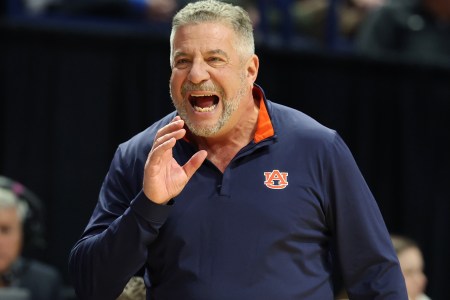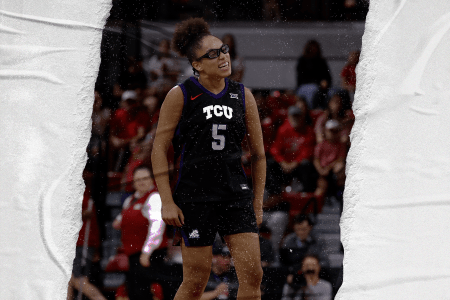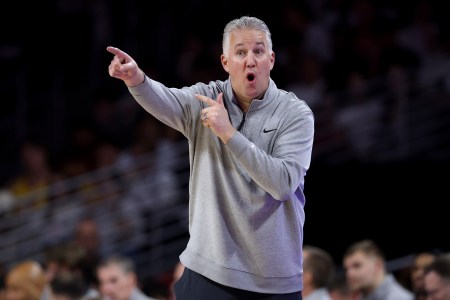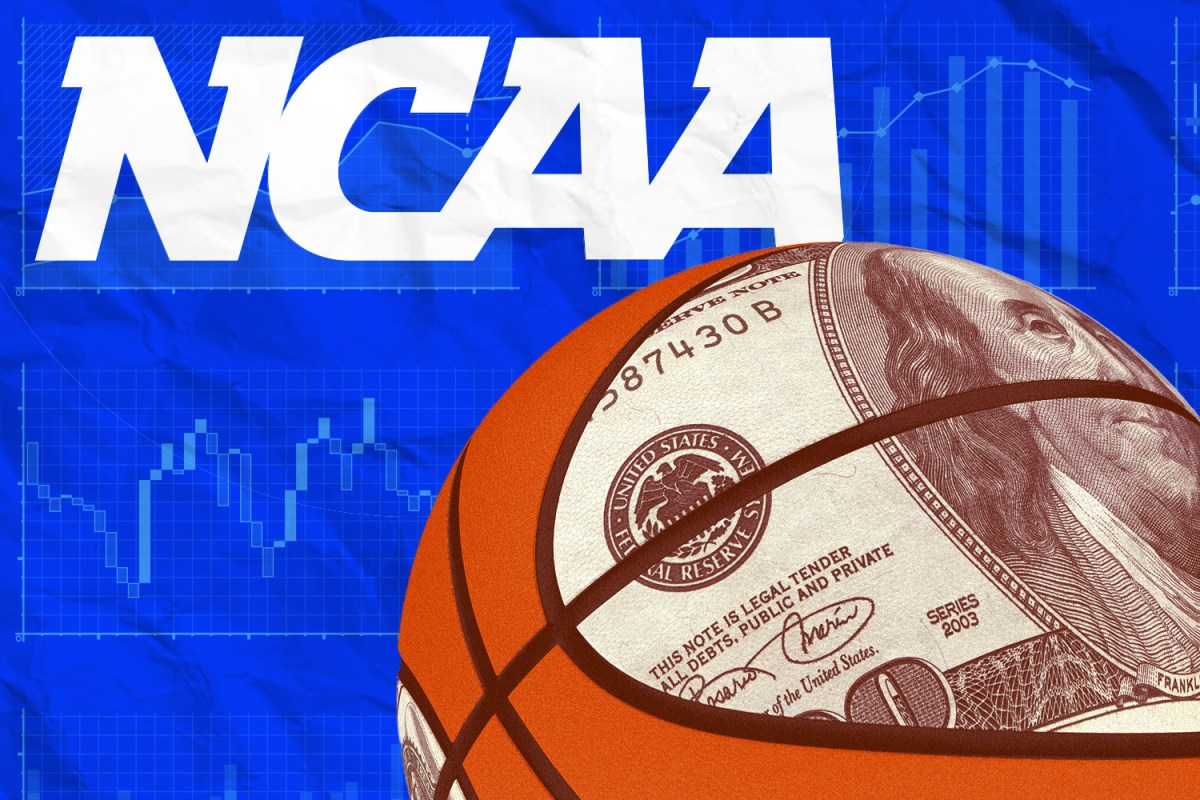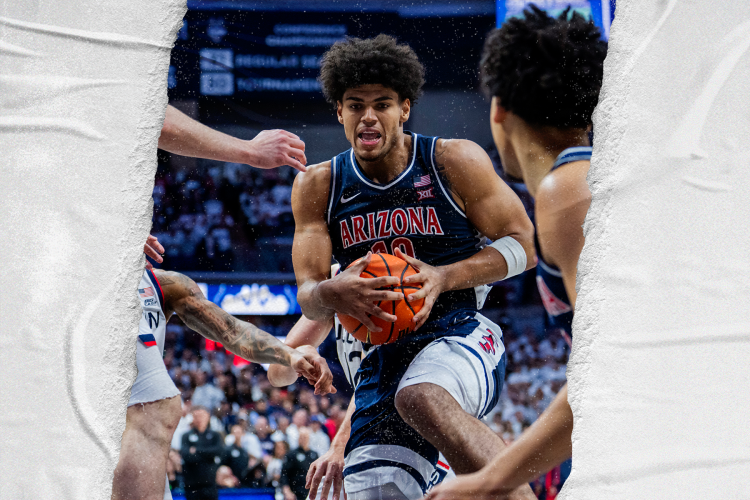It’s hard to pinpoint exactly when the Southeastern Conference decided it wanted to be elite in basketball — beyond Kentucky and occasional pockets of success, like Florida’s two-year national championship run in 2006-07 — but it happened during the tenure of former commissioner Mike Slive (2002-15) and has continued under the leadership of his successor Greg Sankey, culminating in last season’s historically dominant showing (see below).
The reasons the SEC met its goal are not hard to pinpoint. A leaguewide emphasis on stronger non-conference scheduling, using first RPI and now the NET as a North Star. The advent of the SEC Network, which became a massive recruiting advantage because it meant every team’s games would be televised, even if they weren’t on one of the league’s major network partners. Hiring successful, experienced head coaches and paying them accordingly. Appointing an associate commissioner whose sole responsibility is basketball. All that and more came to fruition last season.
Now the task is to keep it going.
1. Will the SEC dominate college basketball the way it did in 2024-25?
We could fill an entire page with metrics to prove the SEC’s dominance of Division I basketball last season, but here are a few of our favorites: A record 14 league teams played in the NCAA Tournament — 87.5 percent of its membership. The SEC won 21 games in the tournament, breaking the ACC’s record of 19 set in 2019. The league’s +22.09 KenPom rating was the highest in history, surpassing the ACC’s +21.37 in 1997. The SEC led the nation with seven teams in the top 20 and 15 in the top 50 of the NET. It won 120 Quad 1 games and 196 against Quad 1 and Quad 2 teams.
There’s much, much more, but you get the picture.
The easy answer to this question is there’s no way the SEC can rack up those kinds of numbers again. But then you look at the coalition of 16 teams and see that many of them retooled with well-regarded high school and/or portal recruiting classes. That includes defending national champion Florida, which landed two of the best guards in the portal. Arkansas coach John Calipari might have his best team in years, dating back to his time at Kentucky. Alabama’s Nate Oats says he has his best shooting team and that the breakneck, three-happy Crimson Tide will play faster and hoist more three-balls than ever. Tennessee’s Rick Barnes has a deeper and more talented team than his last two, which both played in the Elite Eight. Kentucky, a Sweet 16 team last season, again looks to be at least that good.
We could go on, all the way down to the only SEC teams that didn’t make the NCAA field last season: LSU coach Matt McMahon, who gained a reputation for developing great point guards while at Murray State — including Ja Morant — has finally landed another — former UNLV star Dedan Thomas Jr. And South Carolina has regained the services of 6-foot-2 redshirt senior guard Meechie Johnson, Jr., who led the Gamecocks to the 2024 NCAA Tournament, abruptly transferred to Ohio State — where he began his college career in 2020 — and after another season at Columbus just as abruptly returned to Columbia.
What’s Next for Bruce Pearl?
The 65-year-old Auburn coach made a surprise announcement on Monday that he was retiring. Could a run for the U.S. Senate be next?
2. Did Florida restock its backcourt well enough to repeat?
The Gators didn’t sign the second coming of Walter Clayton Jr., but during the annual springtime portal scrum they did land one of the best backcourt tandems in the country. Xaivian Lee, a 6-foot-4 senior who regularly stuffed the stat sheet at Princeton last season, and former five-star combo guard Boogie Fland, who transferred from SEC rival Arkansas, will team with what could be the premier front line in college basketball.
Florida’s collection of big men is so good, in fact, coach Todd Golden has figured out a way to play three of them together. Golden wanted to get his best players on the floor at the same time, so that meant shifting 6-foot-9 junior Thomas Haugh from power forward to small forward. Can Haugh handle the gig? Here are compelling points in his favor: Last season he shot a solid 34 percent from three, and Golden says Haugh can guard positions one through four.
Haugh will team with 6-foot-11, 230-pound junior Alex Condon, a rugged Australian who can also play inside-out, and 6-foot-10, 265-pound Rueben Chinyelu, who has a firm understanding of his skill set and doesn’t stray away from rebounding, blocking shots and setting monster screens that give Florida’s guards wide berth to the rim.
Back to Lee and Fland. We love Lee’s all-around ability. He’s an elite passer, one of the top rebounding guards in the country (6.1 per game last season) and a pesky defender. Last season he recorded two triple-doubles, the first in Princeton’s proud basketball history. Lee can also score — in 2024-25 he logged two 30-plus point games and hit game-winning baskets against Columbia and Dartmouth.
A freshman All-American season was ruined for Fland last season when he suffered a hand injury, coincidentally enough against Florida. At the time, he was leading all NCAA freshmen in assists and assist-to-turnover ratio and considered a potential lottery pick in the NBA Draft. Fland missed 15 games, which all but forced him to forgo the draft and return to school. When he’s healthy, Fland, who averaged 5.1 assists last season, is a big-time playmaker who can also score at the rim and is a good three-point shooter.
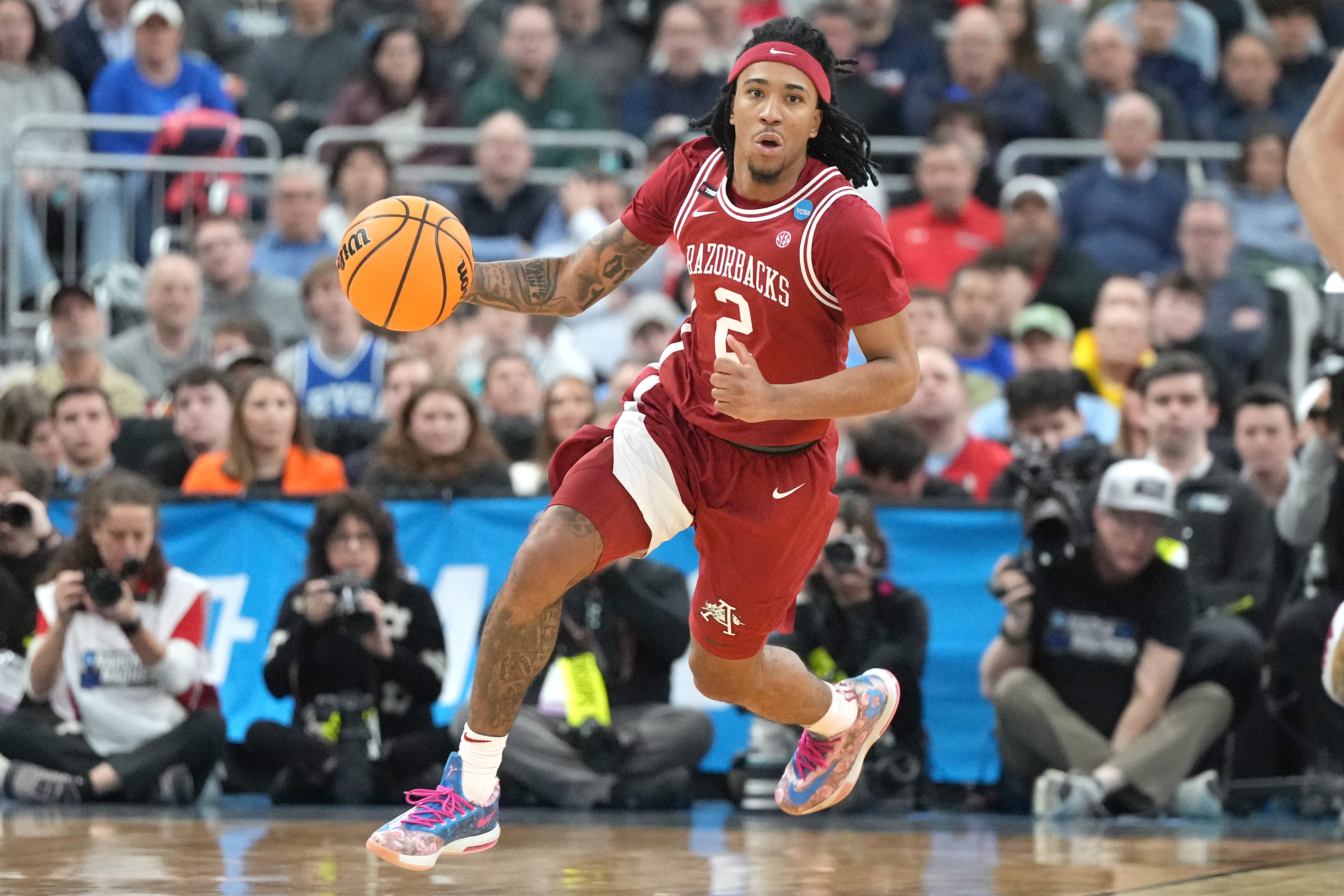
3. Will the league’s three new coaches be ready to rumble?
Last March, Texas fired coach Rodney Terry despite the fact he led the Longhorns to 19 wins and a trip to the NCAA Tournament. A 6-12 league record — 13th place — wasn’t acceptable, so the school reached out to Sean Miller, whose Xavier team had five days earlier bounced Texas from the NCAA’s First Four.
Miller was serving his second stint at Xavier after a largely successful tenure at Arizona and could have finished his career there. He was clear about his reason for jumping into the SEC cauldron. “You get to a certain point in your career where, if you truly want to make a run at a national championship, to see if you can do it, you have to put yourself in a competitive environment like the SEC,” Miller tells Hoops HQ.
Just a few miles down the road from Austin, new Texas A&M coach Bucky McMillan will see if his high speed “Bucky Ball” system will work as well in the SEC as it did in the Southern Conference, where he took over Samford in 2020, straight from a high-school job, and produced a 54-29 record in league games, earned an NCAA Tournament bid in 2024 and a spot in the NIT last season.
Chances are McMillan will have to make some tweaks to adapt to the quicker, stronger athletes his team will face in the SEC. Like Miller, McMillan would have been content to finish his career at his former school, but he’s seeking the game’s biggest prize. “(The portal and NIL) changed my mindset,” McMillan says. “It was going to take a lot to take me away from Samford. It wasn’t going to be a lateral move. It was only going to be a place where I felt we could go and win a national championship.”
Last year, new Auburn coach Steven Pearl had a front row seat to see what it takes to win the natty; he was the Tigers’ associate head coach under his father Bruce, who led Auburn to the Final Four. When the elder Pearl shocked the college basketball world by retiring last month, just before practice began, it paved the way for his son to take over the program.
Bruce Pearl had few peers. He was a master motivator and game-planner whose teams almost never lost when they led with five minutes to play. Steven Pearl said in his first press conference he was up for the task, and his father left him with a talented team, provided no player uses the NCAA-mandated 30-day transfer window to skip town. But we’ll say it again — Bruce Pearl was in a class by himself.
Will the apple fall far from the tree?

4. What transfer will make the biggest impact on the league this season?
It’s a sign of the times that last season, the SEC added another award to its list of postseason honors: Newcomer of the Year. That’s not to be confused with Freshman of the Year. The extra trophy was needed because of the transfer portal and the influx of experienced players pouring into the league from all levels of college basketball.
For the last two years, the SEC’s most impactful transfer played at Tennessee. The newcomer of the year award wasn’t around in 2023-24, but the Vols’ Dalton Knecht — a transfer from Northern Colorado — did win SEC Player-of-the-Year honors after tearing up the league and leading it in scoring and hurt feelings after dropping six games of 35 points or more, most in the country. Knecht was a consensus First Team All-American and won the Julius Erving Small Forward of the Year award.
Last season, the Vols scored again with North Florida transfer Chaz Lanier, who won the SEC’s inaugural Newcomer of the Year honor, set a school record with 123 made three-pointers, won the Jerry West Shooting Guard of the Year award and earned a spot on the 10-man Wooden All-American team.
Don’t be surprised if Tennessee racks up a hat trick — former Belmont and Maryland point guard Ja’Kobi Gillespie is so good the Vols won’t miss three-year starter and program legend Zakai Zeigler. Last season only two players in the country made at least 80 threes, had an assist rate of 27 percent or higher and averaged at least 1.9 steals. One was Bob Cousy Point Guard of the Year winner Braden Smith of Purdue. The other was Gillespie.
But as we mentioned earlier, Florida has two transfer guards who will play important roles. So do LSU and South Carolina. Every school in the league will need at least one transfer to make significant contributions, particularly Auburn, which lost 10 players from a Final Four team and leaned heavily on the portal and junior-college ranks to restock its roster. Keep an eye on UCF transfer Keyshawn Hall, who led the mighty Big 12 in scoring (18.8 points per game) last season and can get his points inside or out.
5. Does John Calipari have a team talented enough to get him to the Final Four for the first time since 2015?
A lot of pundits like the Razorbacks because they lead the SEC by a large margin in returning minutes played (59.3 percent). But these days, that metric doesn’t carry the weight it once did, not when a school can back a Brinks truck to the front porches of transfers and five-star freshmen and, in a matter of a few weeks during the spring, rebuild an entire team. Arkansas does have some battle-hardened returning players, including guards D.J. Wagner and Karter Knox, small forward Billy Richmond III and Trevon Brazile, an athletic 6-foot-10 forward whose career has been hampered by injuries. If he’s healthy, Brazile can be a force.
The Hogs also made some astute portal acquisitions to add frontcourt size. They’re helping 6-foot-10, 230-pound Nick Pringle continue his tour of the SEC after previous stops at Alabama and South Carolina and brought in ex-Florida State multi-tool Malique Ewin, who at 6-foot-10 and 240 pounds can play all over the floor because he can score at the rim, shoot with range and facilitate offense with his passing.
Arkansas played its way to the Sweet 16 last season, the first time a Calipari-coached team made it that far since Kentucky advanced to the Elite Eight in 2019. This would be a great year for the 66-year-old Calipari to show his critics he hasn’t lost a step.


